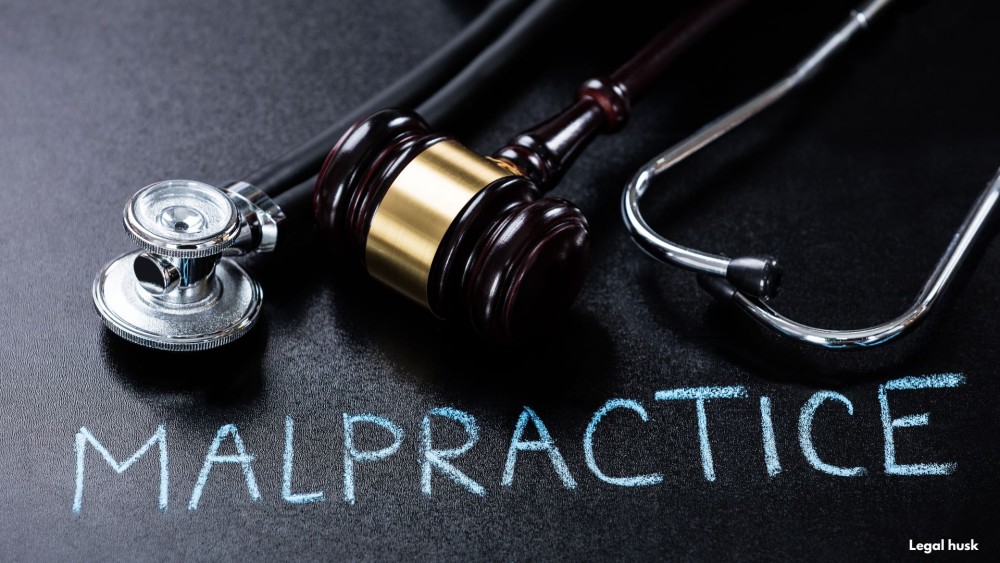
Learn how to write a compelling medical malpractice complaint. Get expert tips on structure, required elements, and filing strategies to build a strong case.
When filing a medical malpractice lawsuit, a well-drafted complaint is essential for initiating the legal process and presenting your case clearly. This guide covers the key practices for writing a complaint for medical malpractice, ensuring your claims are compelling and compliant with legal requirements.
What is a Medical Malpractice Complaint?
A medical malpractice complaint is a formal legal document filed by a plaintiff (the patient or their representative) against a healthcare provider (doctor, nurse, hospital, etc.) alleging negligence, misconduct, or substandard care that caused harm to the plaintiff. A well-crafted complaint is crucial for setting the foundation for your case.
Key Components of a Medical Malpractice Complaint
A properly structured complaint for medical malpractice should include:
1. Case Caption
2. Jurisdiction Statement
3. Statement of Facts
4. Allegations of Negligence
5. Legal Grounds for the Complaint
6. Demand for Relief
Best Practices for Writing a Complaint for Medical Malpractice
1. Be Specific with Allegations
Avoid vague language. Clearly identify the healthcare provider’s specific actions or failures that directly led to the plaintiff’s harm. General statements may weaken your case.
2. Include Medical Expert Testimony
To strengthen your claim, include a statement that supports your allegations from a medical expert. Most courts require expert testimony to establish that the healthcare provider’s actions fell below the standard of care.
3. Avoid Overloading with Irrelevant Details
Keep your complaint focused on the relevant facts. Avoid unnecessary medical history that does not directly pertain to the alleged malpractice.
4. Understand the Statute of Limitations
Medical malpractice claims are subject to strict time limits, known as the statute of limitations. Be sure to file your complaint within this timeframe to avoid having your case dismissed.
5. Properly Format the Complaint
Follow the formatting rules set by the court where you are filing the lawsuit. This includes proper page numbering, headings, and document style, which vary by jurisdiction.
Common Mistakes to Avoid
1. Failure to State a Claim
Ensure that your complaint adequately states a legal claim. A complaint that does not meet the necessary legal standards may be dismissed.
2. Insufficient Medical Documentation
Lack of adequate medical records or expert testimony can hinder your case. Always provide supporting documentation and include references to the specific breach of care.
3. Overlooking Defendants
Sometimes, plaintiffs forget to include all parties responsible for the harm. If multiple healthcare providers or institutions are involved, be sure to name all relevant defendants in the complaint.
What Happens After Filing the Complaint?
Once you file a medical malpractice complaint, the defendant will typically have a certain period (usually 30 days) to respond, either by filing an answer or requesting the court to dismiss the case.
If the defendant responds, the pretrial process begins, including discovery (where both sides gather evidence), depositions, and expert testimony. During this stage, settlement negotiations may take place.
Can a Medical Malpractice Complaint Be Dismissed?
Yes, a medical malpractice complaint can be dismissed if it fails to meet legal requirements, such as:
How Long Does It Take for a Medical Malpractice Case to Be Resolved?
The length of time to resolve a medical malpractice case varies. Some cases settle before trial, while others may take years to go through the litigation process. Factors that influence the timeline include case complexity, availability of expert witnesses, and court backlogs.
Real-World Example of Medical Malpractice Complaint
Case Example: A patient undergoes surgery for a common procedure. However, the surgeon fails to sterilize the instruments properly, resulting in a serious infection. The patient files a medical malpractice complaint, alleging that the surgeon’s failure to follow standard procedures caused harm. The lawsuit seeks compensation for medical bills, pain, and suffering, and loss of wages.
If you or a loved one has suffered due to medical negligence, your complaint must tell the story—clearly, factually, and legally. A weak complaint could cost you your chance at justice.
At Legal Husk, we guide you through:
Structuring your complaint for legal accuracy
Meeting the court's documentation requirements
Connecting you with experienced medical malpractice attorneys
🩺 Whether it’s surgical errors, misdiagnosis, or hospital negligence, we help turn your experience into a powerful legal claim.
🌐 Visit:
🔗 legalhusk.com/
🔗 legalhusk.com/contact
A medical malpractice complaint is more than paperwork—it's a voice for the harm you've endured. Drafting it with care, precision, and legal understanding is critical to holding negligent healthcare providers accountable.
Don’t take chances with your case. Legal Husk is here with legal resources, guides, and professional support to help you file your complaint effectively and confidently.
📎 Start your complaint the right way.
📩 Contact us: support@legalhusk.com
Whether you are dealing with a complex family matter, facing criminal charges, or navigating the intricacies of business law, our mission is to provide you with comprehensive, compassionate, and expert legal guidance.